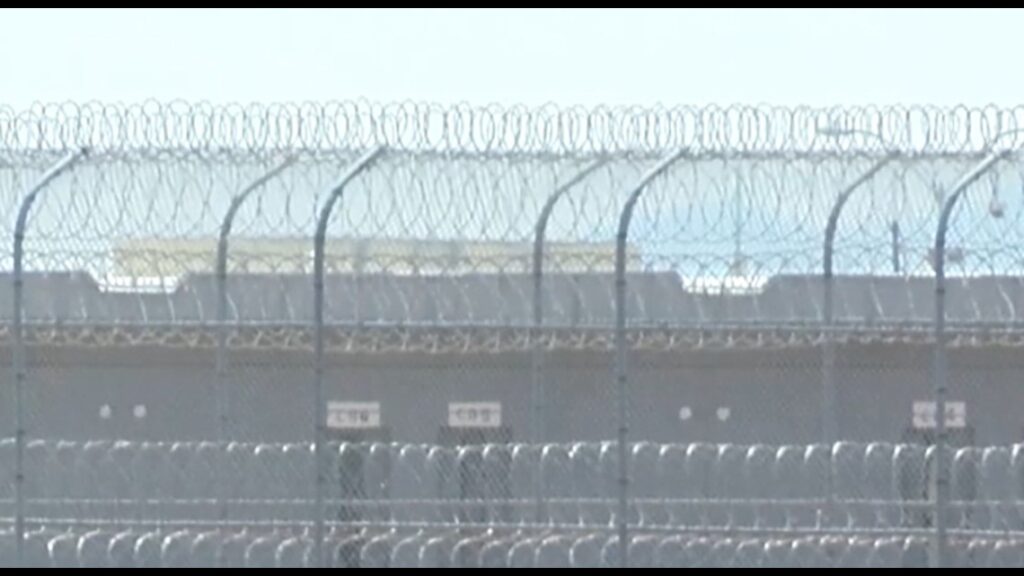At Friday's hearing, court monitors evaluating the Department of Corrections all said progress had been made but it wasn't enough.
PHOENIX — The judge didn't mince her words. Arizona's prison system needs staff to provide adequate medical care.
Earlier this week, federal Judge Roslyn Silver issued an order saying the Arizona Department of Corrections, Rehabilitation and Reentry has not complied with or has a way to assess most of the 184 health care reforms it created and requested last year. . Among the provisions is hiring more qualified staff, such as doctors.
The ACLU and other parties first filed the lawsuit in March 2012, alleging that Arizona's prison system does not provide adequate medical, mental, and dental care to incarcerated people.
Three state prison wardens, four medical companies, and 12 years later…the lawsuit drags on.
RELATED: Arizona prison health system deemed a 'total failure' after failing to comply with judge's orders
The two sides initially settled, but after ADCRR was repeatedly found in contempt of court, Judge Silver ordered the case to go to trial in 2021. Later, the care provided in Arizona's prisons was found to be unconstitutional, and he ordered the department to make changes.
At a hearing in federal court on Friday, Judge Silver asked the department to explain why it failed to comply.
During the hearing, court monitors evaluating the Department of Corrections all said that while progress has been made, it's not enough. Observers detailed areas for further improvement, including more providers in person compared to telemedicine, changes to suicide watch, improved documentation and shorter appointment delays.
Lack of staff was the biggest problem with care failures.
“It's a caseload, a workload that's beyond their physical capacity,” said Corelene Kendrick of the ACLU National Prison Project. “And some people quit because they're worried that their license is at risk. Or they feel like they're being put in a terrible ethical position.”
Kendrick has been working on the case for years and detailed in court that there was still a lack of care. She told the judge that a team was at Perryville, Goodyear's women's prison, before Friday's hearing, but she found there was still a lack of care.
RELATED: Arizona's Independent Prison Oversight Board says it's 'not well-positioned' for oversight
Kendrick mentioned an incarcerated woman who was confined to her bed after being diagnosed with multiple sclerosis. The woman testified at her 2021 trial, and when Kendrick checked on her this week, nearly two and a half years later, she said the woman still had not seen a specialist and that her care She also said that there has been no improvement.
Under state law, Arizona's prison health care system must be privatized, meaning operations are contracted out to private companies.
The ACLU and other plaintiffs are now asking a judge to waive that law to help the Department of Corrections comply.
“That would at least eliminate the profit motive that we have been promoting,” Kendrick said.
ADCRR's lawyers accused the state's recently contracted prison health care provider, Nafcare, of not doing enough to raise wages and hire enough staff, saying that was part of the contract.
He said the state began putting contracts with Nafcare on hold within the past few months to force it to comply with court-ordered staffing levels. So far, he said, the state has withheld more than $10.7 million.
State Prison Director Ryan Thornell also spoke about the developments in court, telling the judge he was considering whether alternatives were better.
“We are hopeful that this matter can be resolved,” Kendrick said. “I think Secretary Thornell, the governor and the attorney general are very focused on complying with federal court orders.”
Before the hearing, the judge said he would take steps toward possible punishment for ADCRR. Instead, after hearing input from all sides, she said she would postpone for another two months to give the department time to implement its contract with Nafcare.
Judge Silver said it was the department's responsibility to make sure Nafcare was doing what it was supposed to do, whether that meant financial sanctions or renegotiating the contract itself.
“Execute that contract,” Judge Silver said. “The problem with this case is staffing.”
ADCRR's attorney declined to comment after the hearing.
Nafcare's lawyers filed a motion to intervene in the case late Thursday. He reached out to NaphCare for comment Thursday but did not receive a response.
ADCRR's media team said they will try to grant 12News an interview with Director Thornell next week.
up to speed
Check out the latest news and stories on the 12News YouTube channel. Subscribe now.


